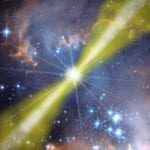 Weird Stuff
Weird Stuff  Weird Stuff
Weird Stuff  Animals
Animals 10 Inspiring Tales of Horses Being Human
 Mysteries
Mysteries Top 10 Haunting Facts About the Ghost Ship MV Alta
 History
History 10 Surprising Stories About the Texas Rangers
 Humans
Humans 10 Philosophers Who Were Driven Mad by Their Own Theories
 Miscellaneous
Miscellaneous 10 Video-Game-Worthy Weapons and Armors from History
 Weird Stuff
Weird Stuff 10 Psychics Who Accurately Predicted Wartime Events
 The Arts
The Arts 10 Pieces of Art Inspired by a Broken Heart
 Health
Health 10 Science Fiction-Sounding New Medical Treatments
 History
History 10 Surprising Facts About the Father of Submarine Warfare
 Weird Stuff
Weird Stuff 10 Times Real Laws Were Based on Bizarre Hypotheticals
 Animals
Animals 10 Inspiring Tales of Horses Being Human
 Mysteries
Mysteries Top 10 Haunting Facts About the Ghost Ship MV Alta
Who's Behind Listverse?

Jamie Frater
Head Editor
Jamie founded Listverse due to an insatiable desire to share fascinating, obscure, and bizarre facts. He has been a guest speaker on numerous national radio and television stations and is a five time published author.
More About Us History
History 10 Surprising Stories About the Texas Rangers
 Humans
Humans 10 Philosophers Who Were Driven Mad by Their Own Theories
 Miscellaneous
Miscellaneous 10 Video-Game-Worthy Weapons and Armors from History
 Weird Stuff
Weird Stuff 10 Psychics Who Accurately Predicted Wartime Events
 The Arts
The Arts 10 Pieces of Art Inspired by a Broken Heart
 Health
Health 10 Science Fiction-Sounding New Medical Treatments
 History
History 10 Surprising Facts About the Father of Submarine Warfare
10 Ways Fringe Science Improved The World
There have always been people pursuing studies that were scoffed at by the mainstream scientific community, largely for good reason. However, that doesn’t mean that pseudoscience has no merit whatsoever. Even if the general idea of the discipline is bunk, the pursuit of these nonsensical ideas sometimes leads to something useful to the scientific community and even the world at large.
10Chinese Alchemists Discovered Gunpowder

Alchemy is the now-defunct pseudoscientific quest to discover the philosopher’s stone, coveted by the particularly greedy and those who couldn’t cope with their own mortality. This discovery would supposedly grant its owner eternal life and youth, or the ability to turn almost any metal into gold. Although it doesn’t seem to make much sense that any one of these ridiculous wish-granting powers would actually exist, many people the world over spent much of their lives pursuing this unobtainable dream. Among them were Chinese alchemists, who actually came across a useful discovery in their quest for magic powers.
While brewing the strange concoctions they hoped would result in that unique combination, Chinese alchemists accidentally created gunpowder. The recipe spread across the globe in the hands of alchemists from various different nations. Before anyone realized its potential for weaponry, it was used to treat skin diseases and create smoke to drive away vermin. As the saying goes, where there’s smoke, there’s fire, and it wasn’t long before the new invention was being used for fireworks. Unfortunately for anyone who’s ever been on the wrong end of a gun, the people who are good at killing soon realized that this explosive could be used to efficiently do just that.
9Searching For Aliens Advanced Astronomy And Physics
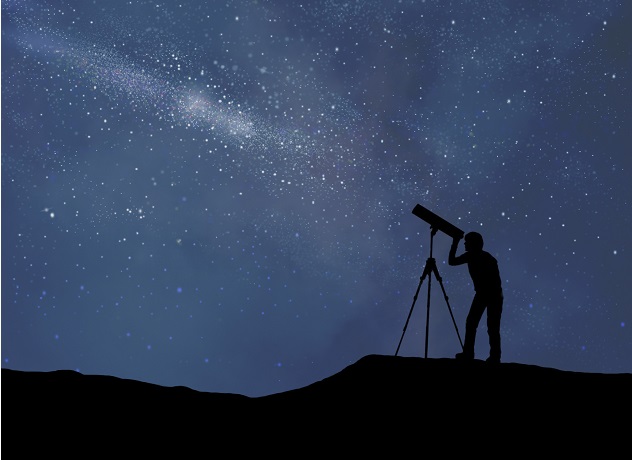
In many ways, studying the gigantic, mysterious cosmos has only raised more questions. First and foremost among these is the question of whether we are alone in the universe. While we haven’t reached a conclusive answer, an astronomer named Percival Lowell tried his best to prove the existence of alien life. He believed that Mars was full of canals for carrying water that must have been created by intelligent life forms. Lowell spent most of his life pursuing his dream, doing his best to map Mars and writing numerous books on the issue. While his theories about canals weren’t true, they changed astronomy and inspired important work in physics.
In Lowell’s time, astronomers were studying planets only in relation to how they affected each other’s gravitational pull and similar issues. In his quest to prove that alien life existed on Mars, Lowell invented a new field that he dubbed “planetology.” This field used some of the contemporary principles of astronomy but focused on learning more about the makeup and atmosphere of individual planets. This is now something we take for granted as part of the study of the solar system, but in his day, it was revolutionary.
In order to conduct his studies, he created one of the first observatories in the country. While his observatory was originally built for the purpose of learning about Mars, Lowell came up with yet another theory that there was a planet farther out in our solar system than Neptune. He and his staff spent years trying to find it to no avail, but years later, another scientist finally found Pluto using Lowell’s observatory.
Lowell’s works and his idea of extraterrestrial intelligent life also influenced the world of physics. According to Carl Sagan, the great physicist Robert Goddard was inspired by Lowell’s work after attending his lectures as a young man. Goddard went on to become the father of modern rocket science.
8The Atmos Clock Was An Attempt At Perpetual Motion

Since the laws of thermodynamics put a damper on perpetual motion theories, the idea has been relegated to the realm of wacky inventors who probably create small explosions in their garages. However, back before science had fully disproven the possibility of a machine that can function forever with no new energy input, many intelligent people attempted to make perpetual motion work. None of these attempts were successful, but that doesn’t mean the inventors totally wasted their time.
The Atmos clock, invented by Jean-Leon Reutter, was not a true perpetual motion device, but it came pretty close. The clock was powered by a small capsule that contained gas and liquid. This mixture would expand and contract based on very slight temperature variations—even just one degree of change could keep it going for a couple of days, allowing the clock to remain wound with no other power source. Originally, mercury was used, but it was replaced with ethyl chloride once it became apparent how dangerous mercury was. As the clock still requires slight changes in temperature to function, it is not a true perpetual motion device, but it is still quite ingenious. With the simple temperature fluctuations in any normal room, the clock could conceivably run forever and remain extremely accurate.
7Phrenology Improved Our Understanding Of Neuroscience
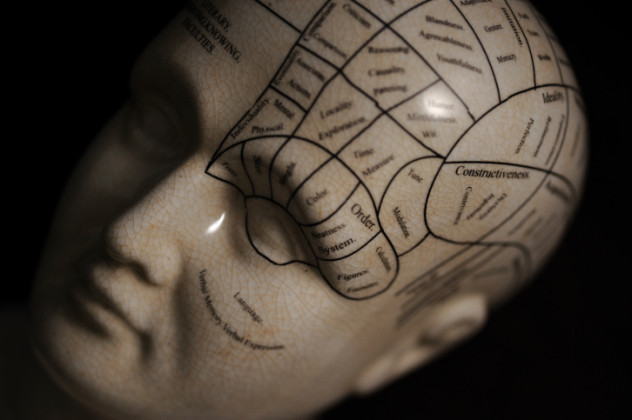
Phrenology was an archaic theory purporting that the brain was divided into modules that varied in size depending on use and genetic influences. The theory held that the skull fit perfectly around the brain, so examining indentations and supposedly enlarged areas by feeling a person’s skull through their skin could determine things like personality traits and intelligence.
Phrenologists had an unfortunate habit of using their pseudoscience to claim that white Europeans were the smartest and all-around best race. This hardly gave the belief any more legitimacy, and it was eventually disproven as we came to better understand the brain. However, despite its tawdry history, phrenology did advance our understanding of neuroscience.
Even though phrenology was total nonsense, it was actually a step in the right direction for the time period in which it was in vogue. When phrenology was first proposed as a major theory, many scientists didn’t believe mental and emotional functions were located in the brain, or they thought the brain performed only part of those roles. Phrenology was the first discipline to strongly push the belief that the brain was responsible for all emotional and mental functions. This motivated scientists to look further into brain study, and before long, we accomplished a lot more than simply proving phrenology wrong.
6Astronomy Evolved Along With Astrology
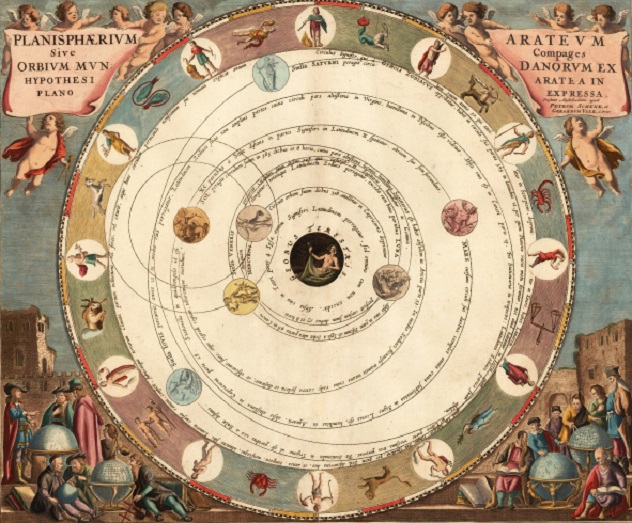
Astrology is no longer even considered a pseudoscience, since there really isn’t anything even vaguely scientific about it, and it has become lumped in with things like palmistry and other psychic phenomena. Ages ago, however, when some people still thought that the Earth was the center of the universe, astrology was a lot more popular. Back then, the movement of the stars was considered just as important for making predictions as for navigation. In fact, some historians believe that humanity’s love of astrology was the vehicle for which astronomical knowledge was quickly passed from culture to culture.
The two disciplines were almost one and the same until astrology was finally proven to be nonsense. Hipparchus, Ptolemy, and other important figures who understood astronomy took its less intelligent cousin quite seriously, and it may have been quite important that they did. If not for this passion to predict the future, perhaps astronomy would never have advanced as far as it did.
5The Phlogiston Theory Led To A Better Understanding Of Gases

Back when we didn’t understand such things, scientists were trying to explain why and how things burned. They came up with the idea of an element called phlogiston that they said was present in all flammable material and caused it to burn. When an object finished burning, that meant all the phlogiston was gone, and it was considered “dephlogisticated.” The theory started to show its cracks when it was observed that some metals would actually gain mass after they were “dephlogisticated.” While now a seemingly bizarre historical oddity, the truth is that the phlogiston theory helped lead scientists in the right direction.
Not long after it was demonstrated that the phlogiston theory made little sense, Joseph Priestley became the first person to identify oxygen. According to the old theory, oxygen was simply “dephlogisticated air,” having been depleted of hydrogen and its accompanying phlogiston. Interestingly, when hydrogen was first identified, it was mistaken for the elusive element of phlogiston itself. It seems incredibly silly now, but the experiments that gave us our current understanding of oxygen, hydrogen, combustion, and oxidation may not have been performed if not for those who wanted to understand the flaws in the phlogiston theory.
4Hypnosis Led To New Pain Management And Addiction Treatment Methods

The discipline of hypnosis is extremely misunderstood, often even by those who claim to practice it. These misconceptions are fed by television, movies, and stage shows that suggest you can use hypnosis to lull someone into a deep sleep and make them do something that they won’t remember. Scientists now know that those under hypnosis are wide awake, and no one will do something under hypnosis that they wouldn’t normally do. However, hypnosis has provided us with useful tricks, just not the ones you might think.
The most common misconception of hypnosis is the idea of suggestion. While hypnosis is a state of heightened suggestibility in some ways, the subject is still in control. Hypnosis sessions with a therapist are more about guiding the subject through a process to which they’ve consented, and self-hypnosis can be just as effective if you know how to do it. This form of hypnosis has real, legitimate medical applications. It has been shown to help people tolerate pain, deal with anxiety, and overcome drug addiction. Of course, if an addict has no desire to quit, then hypnosis won’t help much, but that stands true for most treatments.
3Aromatherapy And The Fight Against Germs

While many people may assume that aromatherapy consists of healing based entirely on smelling something, that’s often not actually the case. Aromatherapy also involves applying essential oils from specific plants or herbs to the skin. Because the use of concentrated oils can cause severe irritation, they are usually mixed with a carrier, such as coconut or olive oil. While there isn’t any evidence that simply smelling an oil will do anything besides allow you to enjoy a pleasant odor, studies on the effects of the oils themselves were much more promising.
Scientists studying lavender essential oil have found evidence that it can be effective for fighting methicillin-resistant staphylococcus areus (MRSA), which they believe could make it useful as a locally applied antimicrobial agent. Other studies of lavender oil have found it to have antifungal properties as well as possible functions as an anti-inflammatory agent.
Another essential oil that has received a lot of attention from aromatherapists—and thus, from serious scientists who wish to learn about the efficacy of the claims—is tea tree oil. Studies on the efficacy of tea tree oil have observed effects similar to lavender oil with regards to MRSA. The studies’ researchers believe that tea tree oil will become an important part of the fight against MRSA as more strains become resistant to current antibiotics.
2Lunar Effect Studies Provided New Insight On Circadian Rhythms
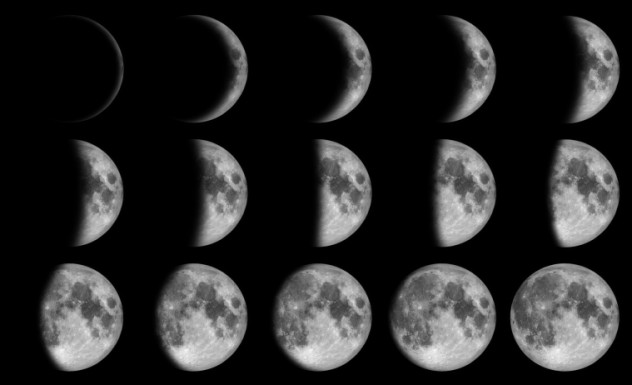
The lunar effect is the widely held belief that the cycles of the Moon influence human behavior. Unfortunately for those who take this theory seriously, countless case studies have determined that it’s bunk. However, most of these studies are plagued by poor methodology, and the idea of the Moon’s effect on human behavior may not be entirely without merit.
In a Swiss study that took place over a decade ago and lasted almost three years, researchers studied the sleeping habits of 33 people. The study included regular trips to a sleep lab and was meant to understand sleep better in a more general way. According to one of the researchers, they were at a bar during a full moon years later when they decided to go back and crunch the numbers.
What they found was that on the nights around the full moon, people tended to take a few minutes longer to fall asleep and sleep for about 20 minutes less than usual. The test subjects were not in the lab every night, so the researchers were unable to test every single subject across every single lunar cycle, but the results still leave us with interesting insight. While more testing is still needed to help us understand how this works, it seems to indicate that our biological clocks can keep time based on the cycles of the Sun and the Moon, even without seeing them.
1Bermuda Triangle Myth Inspired Studies On Methane Hydrates

While it’s tempting to believe that the Bermuda Triangle is some magical place where mysteries abound, it is simply not true. Many exhaustive case studies have found nothing to indicate that anything strange is going on. While there have been some documented disappearances in the area, the number of incidents is no higher than in any other part of the ocean. As far as scientists, geographers, and political administrators are concerned, the triangle isn’t even a real place. Despite this, the triangle has inspired research, some of which has uncovered useful information.
It started with a geochemist named Richard McIver. He had first heard about the Bermuda Triangle myth back in the early 1960s, and it became a lifelong curiosity. He knew that fairly large quantities of methane hydrates, which we started to fully understand in the 1970s, had been found in the area near the triangle. These hydrates sometimes escape and form a gas bubble that erupts near the surface of the water. This led McIver to propose the theory that these eruptions were the cause of the unexplained ship and airplane disappearances in that area. Theoretically, an eruption of methane hydrates near the surface could also cause problems with electronics, which covered the entire range of mysterious issues quite nicely.
Recently, two researchers studied this decades-old theory to determine whether methane hydrates could cause such a problem. They discovered that if a ship were to be at the wrong place near a methane bubble eruption, it could sink the vessel in a very short amount of time. They believe that if we further study this effect, we may be able to prevent more ships from sinking in the future.
You can follow Gregory on Twitter.







